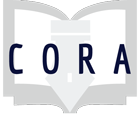Each year, I host an Art+Feminism Wikipedia edit-a-thon and I often get students who are new to Wikipedia editing, as well as students who show up for class credit. To help engage students in different activities on Wikipedia, I created the following BINGO cards. These can be used by instructors or event organizers in any way that fits your approach to edit-a-thons. I always provide instruction and an Art+Feminism research and event guide to help everyone get started editing. These BINGO cards are especially useful for new editors and content creators.
Assignments
Students self-reflect on ways in which they do research and create knowledge. This is a discussion topic in an online library research class. My students are mostly adult learners with full-time jobs.
A two-credit online undergraduate information literacy course used in an adult degree completion bachelor's program.
This is a participatory, variable lesson frame ready for you to modify to suit your instruction needs. This lesson and it's variations focuses on encouraging students to see themselves as information creators and part of the scholarly conversation and can also variously include conversations about about the scholarly information cycle and/or authority depending on instruction constraints and configuration.
This activity provides an interactive, student-centered, fun opportunity to explore skills of critical thinking and evaluation of resources. By allowing students to connect those things that they already know (even if they don’t know they know it) to larger concepts, we encourage them to trust themselves and to begin to develop their intuition as scholars, moving away from checklists and formulas for resource evaluation and toward a thoughtful critique of sources based on individual need and use.
Students learn about innovation, the distribution of innovation across the country, and what can be patented. Working in groups, they examine patents and consider the changes the patents brought. They then use a mapping program and interpret data from that map to consider how local resources promote innovation.
This assignment was created for a credit bearing course for first year students. It's designed to help students take what they've learned about algorithmic bias from the course lectures and readings and apply it to their own search practices. They also critically analyze search results for advertisements and compare DuckDuckGo to Google.
Did fake news affect the presidential election? Do websites purposely publish misleading stories? In this workshop, learn how to evaluate the trustworthiness of news stories while responsibly sharing reliable information.
Are you finding reliable sources for your research papers and projects? Has your professor asked you to use scholarly sources? What is a scholarly source anyway? In this workshop, learn how to critically evaluate the information you find through books, articles, and websites.
**This lesson plan was adapted from "Establishing and Applying Evaluation Criteria" p. 74 -78 in Teaching Information Literacy Threshold Concepts Lesson Plans for Librarians, edited by Bravender, McClure, and Schaub (2015).**
This workshop delivers an action-oriented introduction to personal data privacy designed for new college students.
